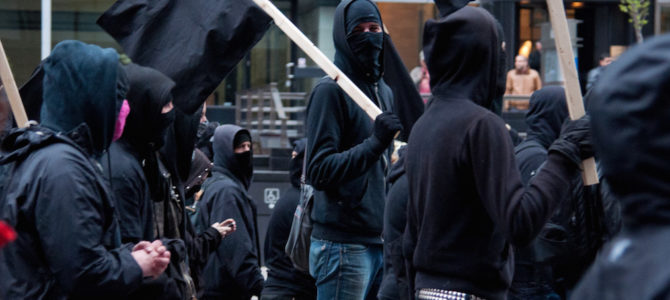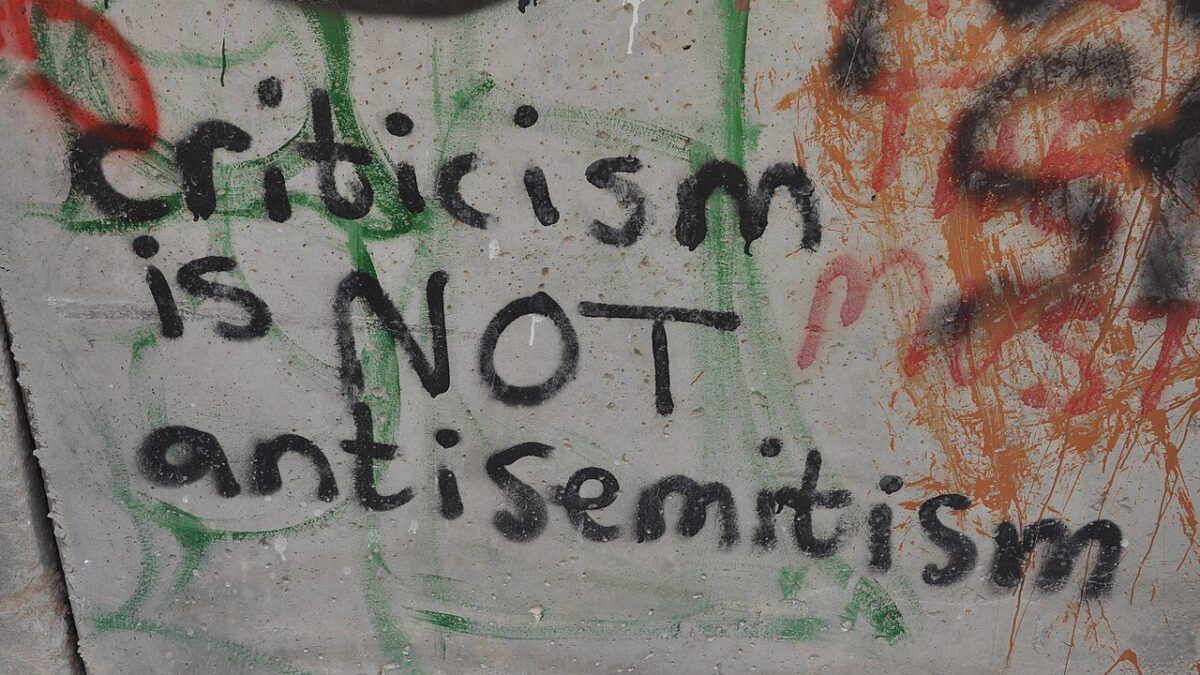
Later this month, Steve Bannon is scheduled to speak at “Berkeley Free Speech Week,” a four-day event at the University of California at Berkeley organized by Milo Yiannopoulos. Any bets on how that’s going to go?
Berkeley has of course earned a reputation this year as a hotbed of violent left-wing reaction. Last month, police arrested more than a dozen masked “Antifa” streetfighters who descended on a canceled anti-Marxism rally and attacked anyone they thought might be a Trump supporter. Earlier this year, pro-Trump marches in Berkeley have degenerated into roving street battles pitting Trump supporters against antifa gangs. Back in February, a planned appearance by Milo at UC-Berkeley prompted violent protests, including Molotov cocktails, smashed windows, and commercial-grade fireworks being fired at campus buildings.
So why stage yet another free speech rally in Berkeley? Why the dogged commitment to free speech in a place that obviously has little use for it, other than as an excuse to attack people in the streets?
The reason is bigger than Berkeley and more important than shock artists like Milo. In the era of Trump, efforts to shut down free speech by force have come almost exclusively from the Left, and are part of a larger project to redefine the boundaries of political discourse in America. Anyone who espouses conservative views or support for the president (or even insufficient opposition to him) can now expect to be labeled a racist, fascist, or white supremacist.
The Left Is Defining Down White Supremacy
That might sound outrageous to the average American, but it’s commonplace in academia. Examples abound. During a recent panel at Brown University on Charlottesville (a popular campus trend), professor Tricia Rose explained that white supremacy is not a “marginal” phenomena or a “leftover, fringe ideology” that’s limited to the kinds of overt displays we saw in Charlottesville. According to Rose—who is also the director of the Center for the Study of Race and Ethnicity in America at Brown—“most white supremacy is very civil,” by which she means it is mainstream.
It’s not just academia. Erik Wemple of The Washington Post wrote last week about a recent social media workshop at Politico in which editors warned staffers against loosely opining on controversial topics “just for the sake of weighing in.” Sage advice, to be sure, especially for an outlet like Politico that prides itself on being trustworthy and nonpartisan.
But then Wemple relays this detail: “Staffers at Friday’s meeting asked whether it was okay to tweet their opinions about topics such as physical attacks on journalists and white supremacy — i.e., matters that receive and deserve widespread condemnation. ‘The editors’ message was very hesitant: Try to stay away from those things because some of them are partisan,’ said a source in attendance.”
That an issue like white supremacy would be considered “partisan” is a testament to how drastically progressives have managed to redefine the terms of public debate. White supremacy is not in fact partisan, but what Politico’s editors are implying is what many on the Left proclaim outright: Republicans and everyone who supports President Trump are white supremacists. Even ESPN hosts now feel the need to shout this on Twitter.
The Mainstream Media Is Complicit
Equating support for Trump with white supremacy is part of a larger effort on the Left to cast everything Trump does as extreme and label all his supporters as extremists. For example, a recent New York Times piece—published as a straight news article in the business section—catalogues Trump’s quiet efforts to undo Obama-era progressive social policies. The piece frames this as a departure from long-established norms, even though the polices in question are mandates handed down by the Obama administration, things like forcing Catholic nuns to pay for birth control.
The Times cites Trump’s May executive order promoting free speech and religious liberty as evidence of “a fundamental repurposing of the federal bureaucracy to promote conservative social priorities.” But policies like the Obamacare contraception mandate, which was challenged in federal court by the Little Sisters of the Poor, a group of Catholic nuns, were themselves part of a fundamental repurposing of the federal bureaucracy to promote progressive social priorities under Obama.
Reversing the policies of the previous administration is a normal part of American politics, especially when the opposing party wins the White House. But the Left would have Americans believe that everything Trump does is new and malicious. Liz Wolfe recently noted in the Washington Examiner that “HuffPost, Teen Vogue, and TechCrunch all published competing headlines about how the Trump administration removed a 2014 sexual assault report from the White House website.”
What they failed to mentioned is that removing such reports from the White House website is standard practice for incoming administrations in the Internet age. The Obama administration even released a statement about it, and that anyone can easily access those archived reports online at ObamaWhiteHouse.gov (as opposed to WhiteHouse.gov).
These kind of media games can’t be separated from the Antifa streetfighters bent on silencing free speech. Their tactics might differ, but their logic—and their ultimate goal—is the same: to redefine the boundaries of acceptable disagreement in the public square. It goes like this: if Trump is trying to undo Obama-era policies, then he is attacking progressive social values. If he’s attacking progressive social values, he’s basically advocating white supremacy. Therefore, supporting Trump means supporting white supremacy, and it’s okay to attack those white supremacists in Berkeley, or wherever they might gather.
This twisted logic is more widespread on the Left than most people realize. Countering it is the duty of all Americans who think it’s still possible to disagree and yet maintain a functioning republic. That’s why it’s important to insist on free speech and keep staging rallies, even—perhaps especially—in Berkeley.









